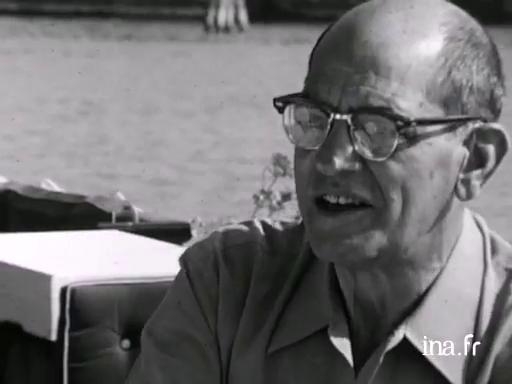Conversation with Luis Buñuel on Belle de jour

Information
Interview with Luis Bunuel at the Mostra in Venice on the occasion of the release of his film Belle de Jour, in which he explains how he adapted Joseph Kessel's novel. He also discusses his respective relationships with Spain, France and Mexico, and the beginning of his career with An Andalusian Dog.
Context
Luis Buñuel (1900-1983), who came to Venice's Mostra (where he won the Golden Lion award) to presentBelle de Jour, talks about three countries that were significant in his life and career: his native Spain, where a Jesuit education forever affected him and where he met a young Salvador Dali, who introduced him to dadaism; France, where he emigrated to in 1925 to join the surrealists and shoot the scandalous An Andalusian Dog (1928) which was inspired by one of Dali's dreams; and Mexico, where he exiled himself after the war, after being kicked out of the United States because of his Marxist beliefs.
In Joseph Kessel's Belle de Jour, Catherine Deneuve plays a young upper class girl that prostitutes herself behind her ill husband's back - a plot close to one of Jean-Luc Godard's films shot that same year (1966), 2 or 3 Things I Know About Her. After that, Buñuel shoots The Diary of a Chambermaid, his second adaptation with scriptwriter Jean-Claude Carrière. It was to be "his last film" - a declaration which later proved to be false since he shot 5 more films, 3 of which were co-written with Carrière, such as That Obscure Object of Desire.




